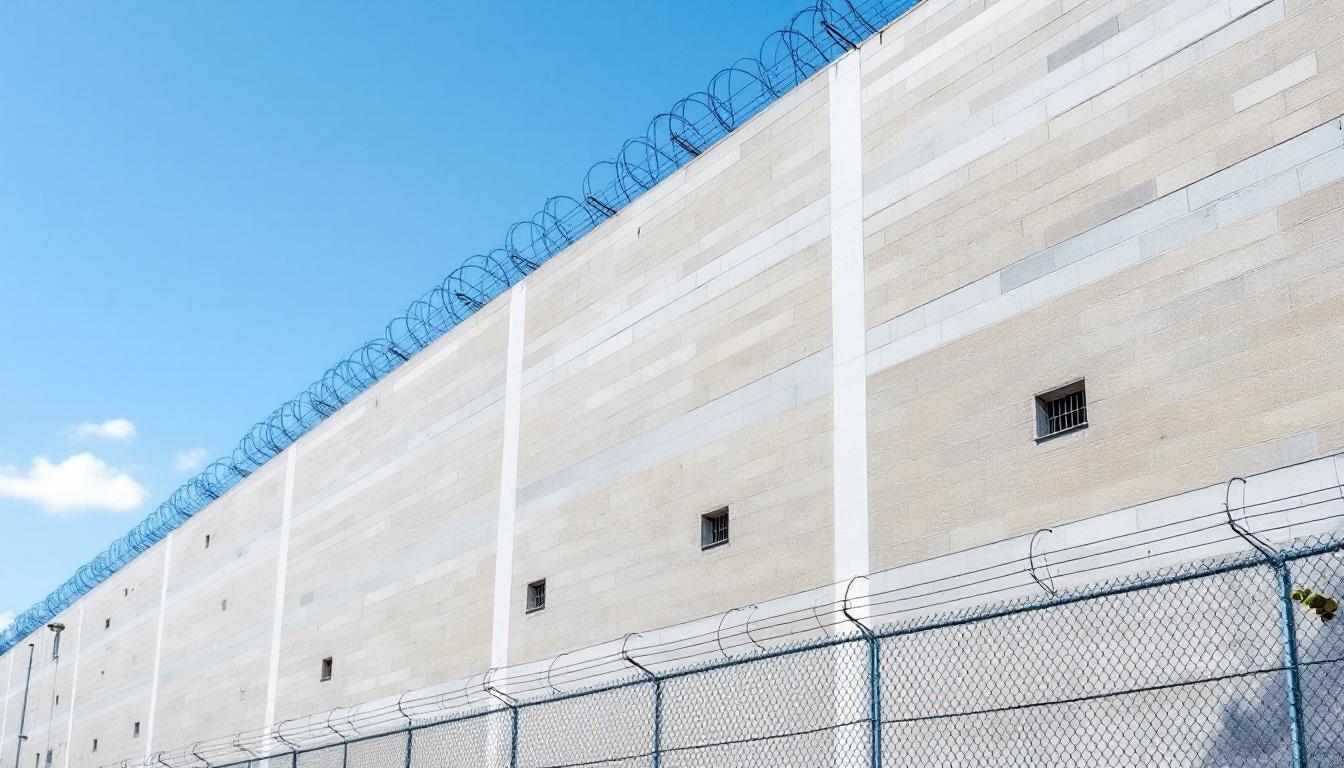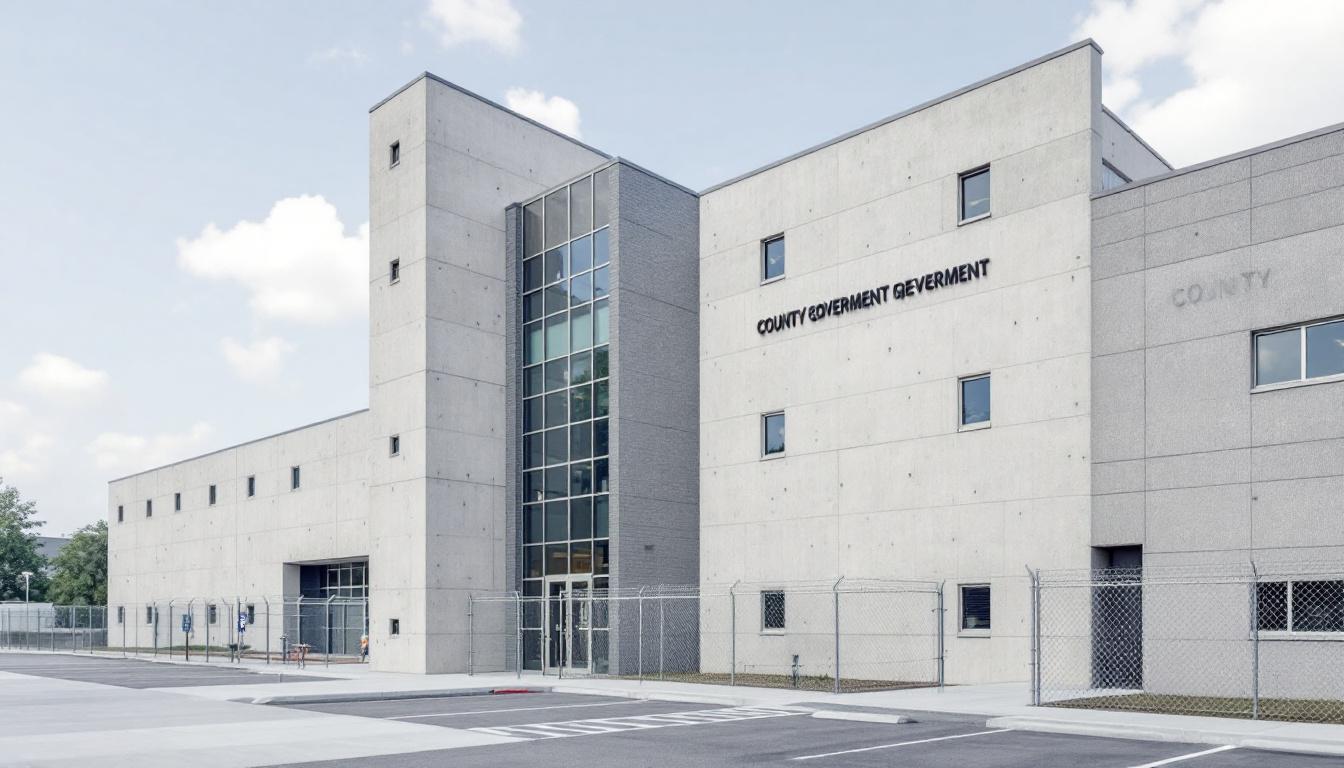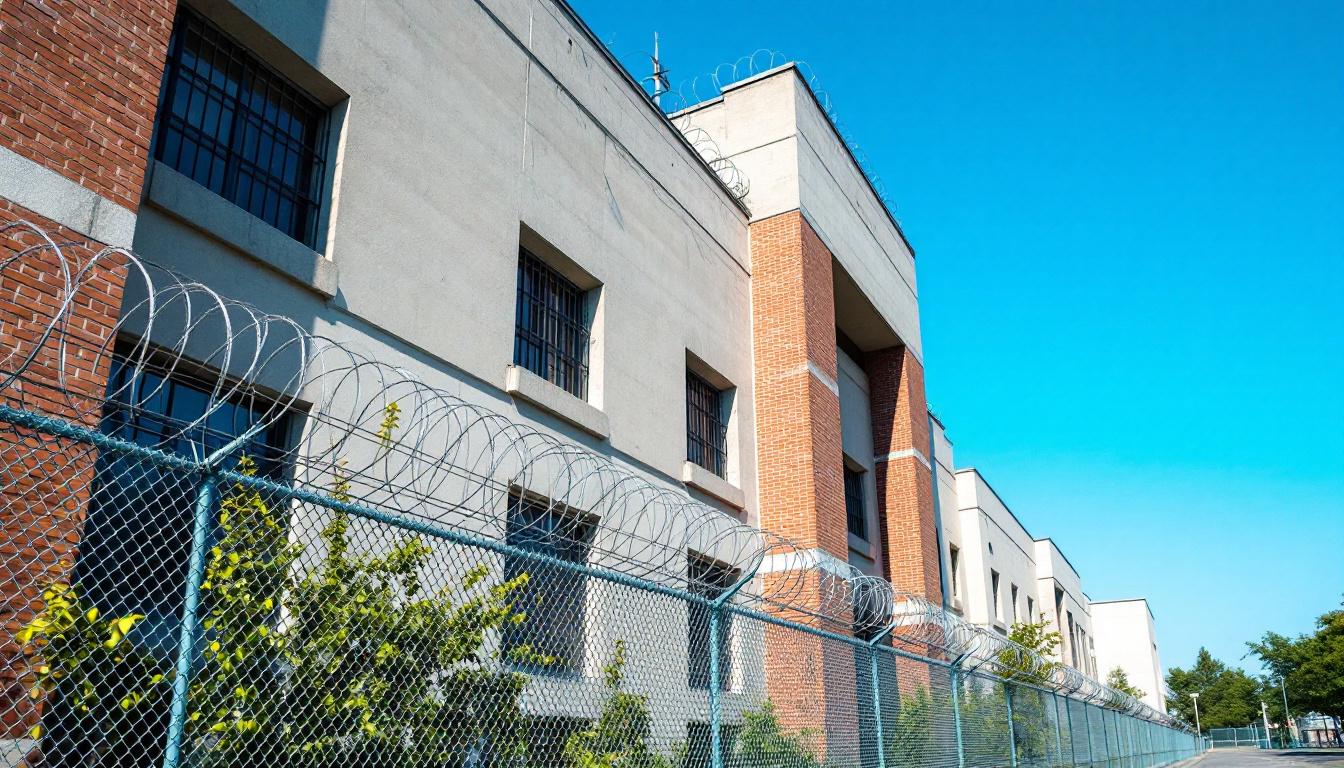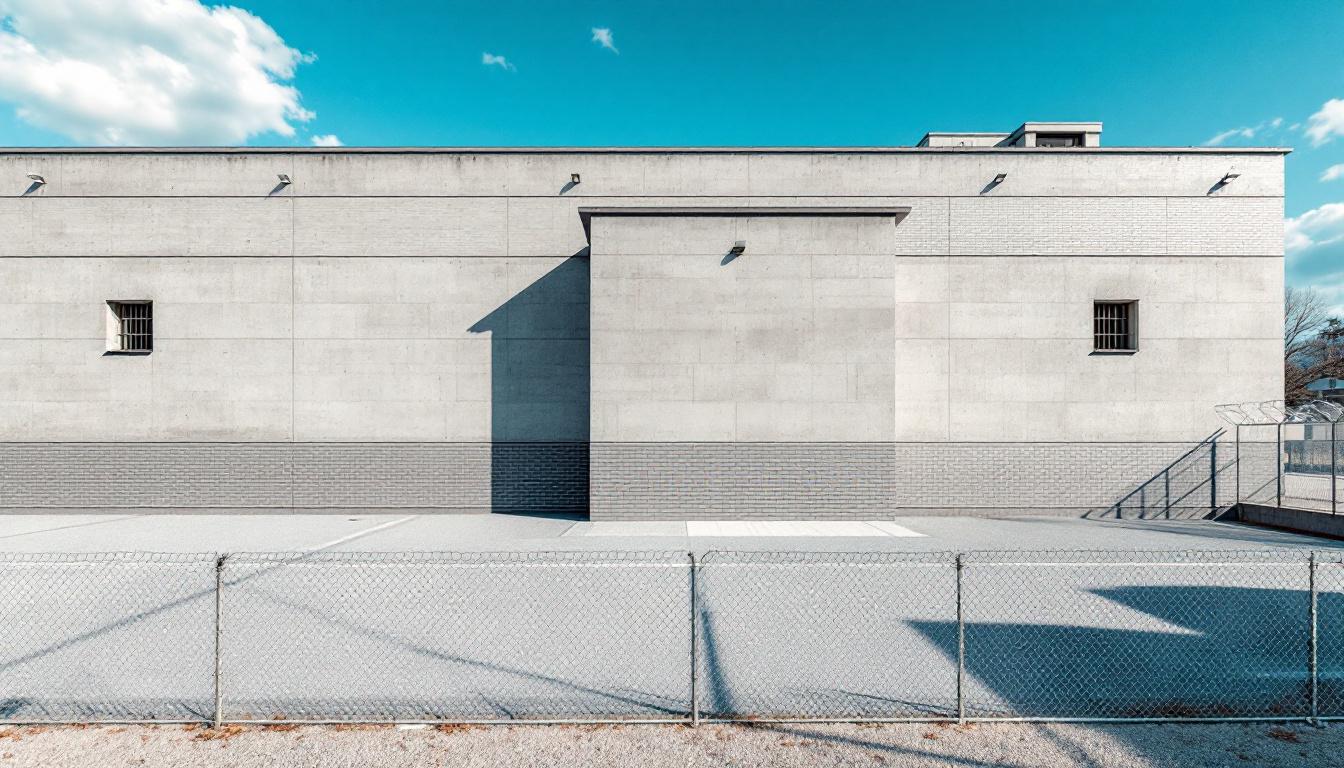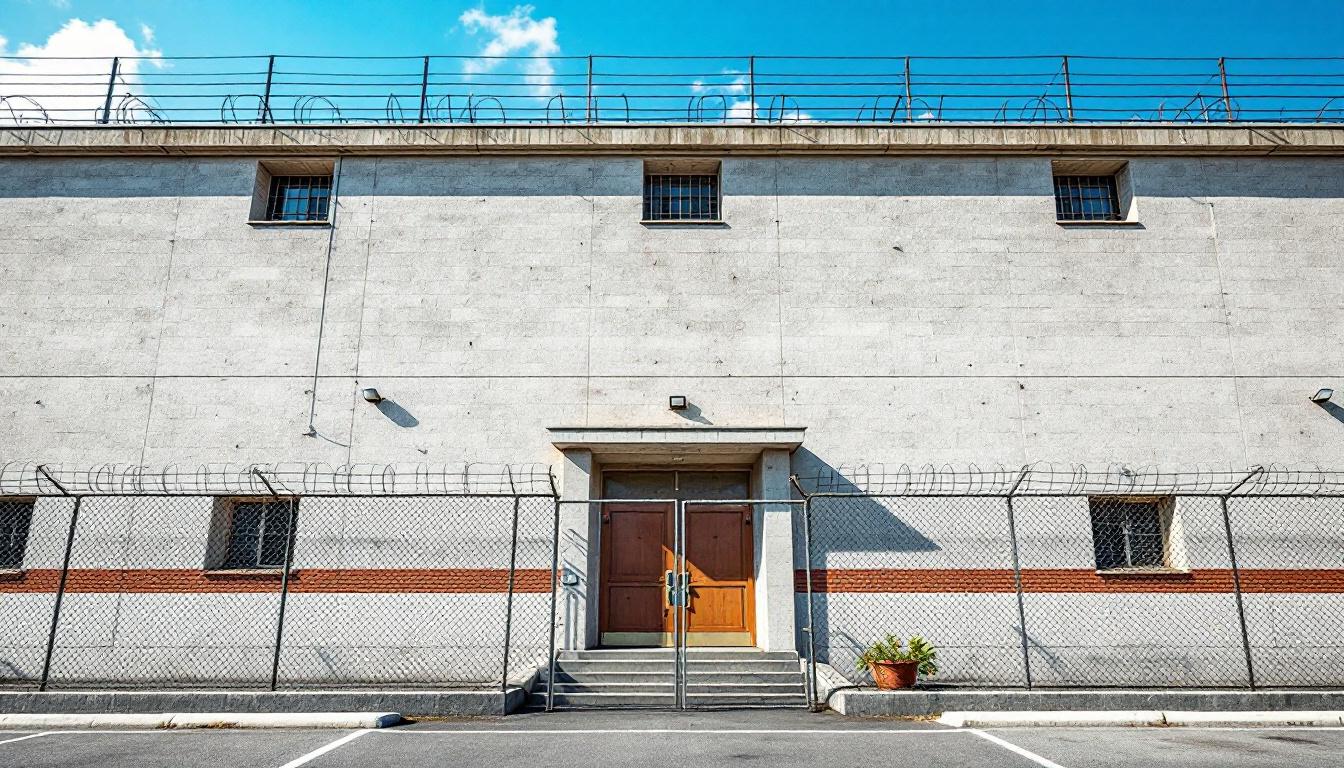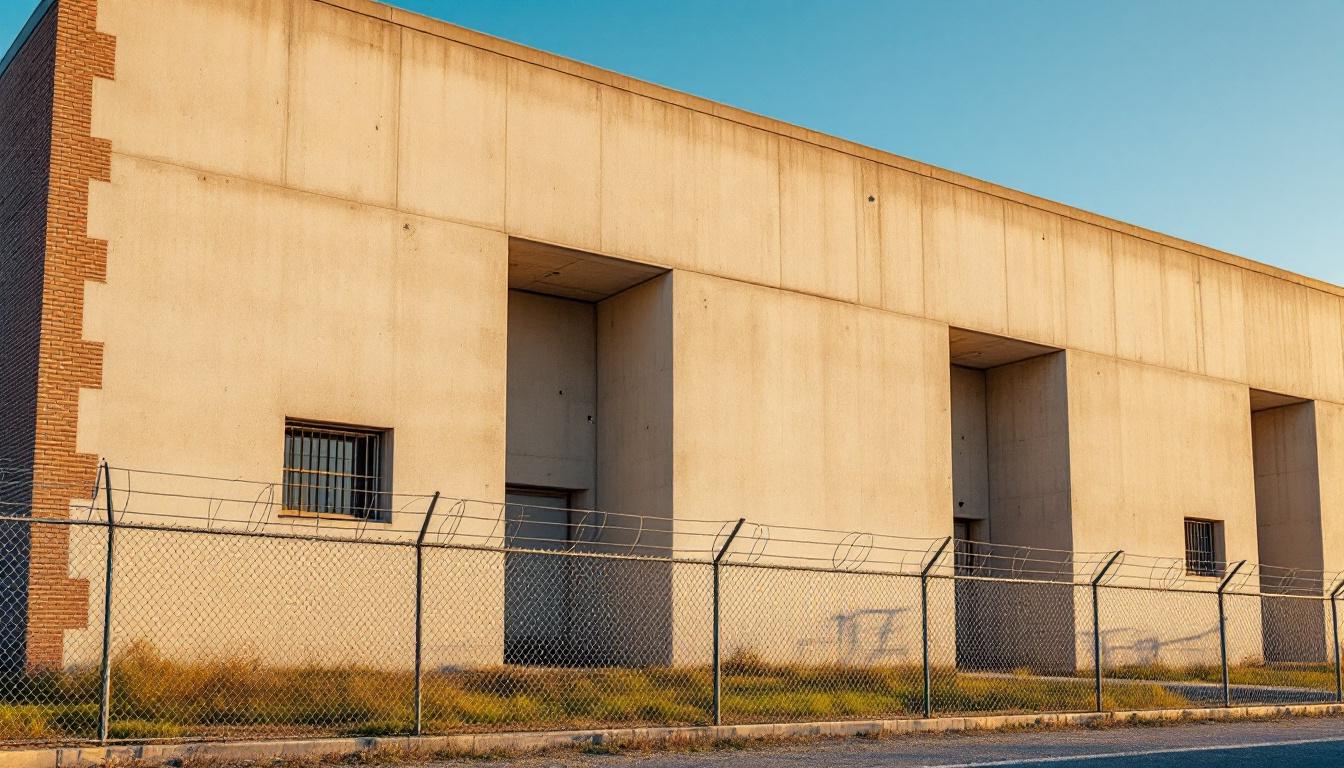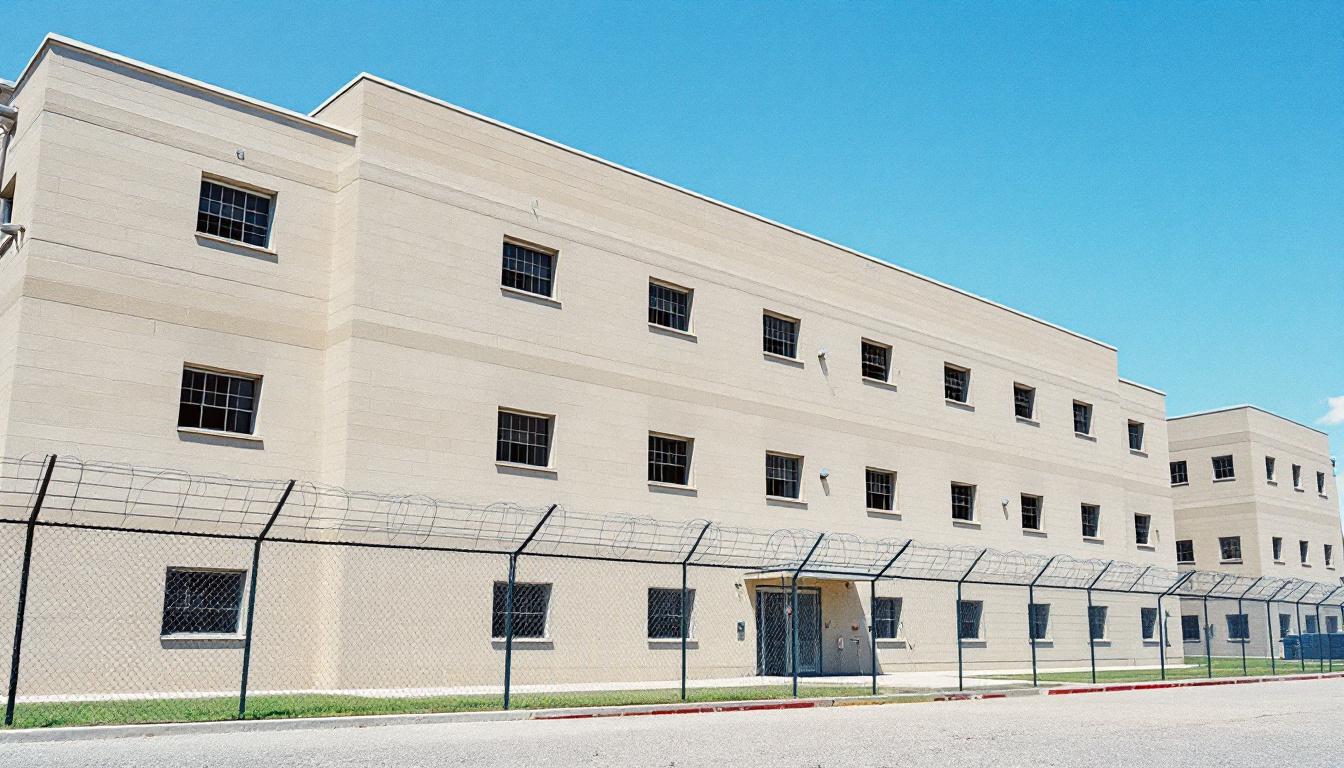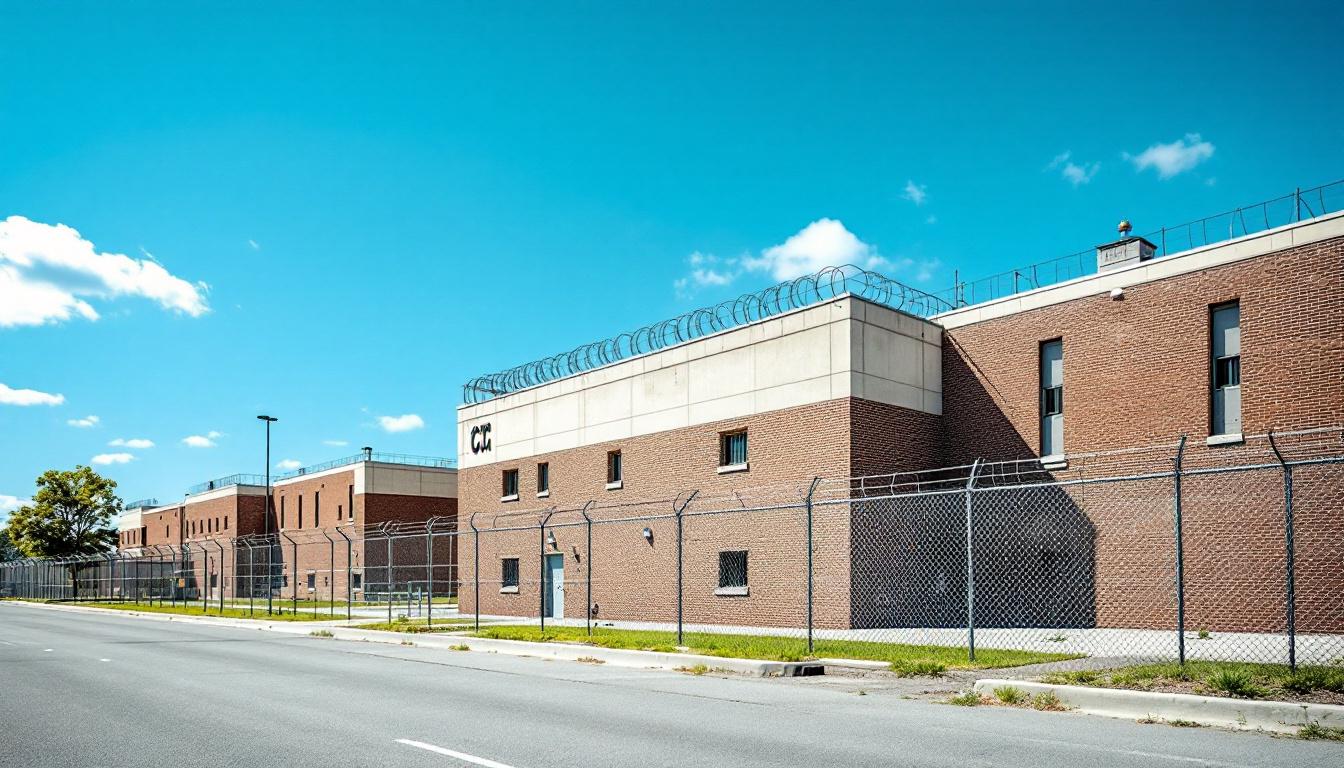
Quick Navigation
How to contact an inmate at Martin County Sheriff's Office
This comprehensive guide will walk you through how to connect with an inmate at Martin County Sheriff's Office. Follow the steps below to find an inmate and send letters and photos:
- Search for the inmate using our search tool below
- Create your account or log in to Penmate
- Write your message (up to 6,000 characters)
- Send instantly - inmates receive printed copies daily
Find an Inmate
Search for an inmate to start communicating today
Tip: You can search by first name, last name, or inmate ID number
To contact a person at Martin County Sheriff's Office start by searching for the person on the official facility website. Perform a search by following these steps:
- Step 1: Enter their first name and last name into the search form and click "Search"
- Step 2: Locate their inmate record
- Step 3: Write down their Inmate ID and any housing information provided
Important! Be sure to enter the person's full name. Nicknames should not be used.
How to Send Messages to Inmates

You can use your phone or computer to send emails, letters, and photos to an inmate. Messages are sent electronically to inmate tablets or kiosks at the facility. If you would like to send a message, start by searching for an inmate at Martin County Sheriff's Office.
Sending Photos and Postcards

A great way to send love and support to a loved one at Martin County Sheriff's Office is to send photos and postcards. It only takes a few minutes to send photos from your phone and it makes a huge difference. You can also mail postcards with words of support and inspiration, or design your own postcard for special moments like birthdays and holidays.
Important! Be sure not to send any explicit photos or they may not be approved by the facility. You can also use a photo printing app like Penmate to make sure your photos are printed at the correct size (4x6 or 3x5) and are mailed according to the rules and regulations of Martin County Sheriff's Office.
Frequently asked questions about Martin County Sheriff's Office
-
How long does it take to deliver a message?
If you're sending an email message your letter is usually delivered within 24-48 hours. For messages sent via mail you should expect delivery within 3-7 days. All messages will need be approved by Martin County Sheriff's Office.
-
How much does it cost to send a message to Martin County Sheriff's Office?
You can send a message free using your phone or mail a message via USPS for the price of a $0.60 stamp and envelope. You can also purchase credits or e-stamps from services starting at $1.99.
-
What services can I use to contact an inmate at Martin County Sheriff's Office?
Penmate
You can use Penmate to send letters and photos to an inmate from your phone. It's an easy way to stay in touch during your loved one's incarceration. Use the inmate locator to find an inmate's location and contact information, then you can send messages within a few minutes.
Securus messaging
Securus may be another option for communicating with an inmate at Martin County Sheriff's Office. You can create a friends and family account and purchase credits to send messages. All messages will be reviewed and must be approved by the facility.
JPay
Some county jails and state prisons may support sending messages with JPay. You must register an account with the system, find your loved one, and purchase stamps to send messages. For some locations you can also attach photos.
Smart Jail Mail
You may also check if Smart Jail Mail is available at Martin County Sheriff's Office. Smart Jail Mail is operated by Smart Communications and has contracted with some state and county jails. After purchasing credits, your messages and photos are sent to the facility, printed out, and then handed out to your loved one.
-
What is the mailing address of Martin County Sheriff's Office?
Mailing address:
Martin County Sheriff's Office
301 N Saint Peter St
Stanton, TX 79782
Phone: (432) 756-3336 -
What are the visiting hours at Martin County Sheriff's Office?
Visiting hours at Martin County Sheriff's Office vary by housing unit and security level. Generally, visits are scheduled on weekends and holidays, with some facilities offering weekday visits. Contact the facility directly at (432) 756-3336 or check their website for the current visiting schedule. Visits typically last 30-60 minutes and must be scheduled in advance.
-
What items are prohibited when sending mail to Martin County Sheriff's Office?
Prohibited items typically include: cash, personal checks, stamps, stickers, glitter, glue, tape, staples, paperclips, polaroid photos, musical or blank greeting cards, hardcover books, magazines with staples, and any items containing metal or electronics. Only send letters on plain white paper with blue or black ink. Photos must be printed on regular photo paper (no Polaroids). Always check with Martin County Sheriff's Office for their specific mail policies.
-
How do I send money to an inmate at Martin County Sheriff's Office?
You can send money to an inmate at Martin County Sheriff's Office through several methods: 1) Online using JPay, Access Corrections, or the facility's approved vendor, 2) Money orders mailed directly to the facility with the inmate's name and ID number, 3) Kiosks located in the facility lobby, or 4) Over the phone using a credit or debit card. Fees vary by method, typically ranging from $2.95 to $11.95 per transaction.
-
Can I schedule a video visit with an inmate at Martin County Sheriff's Office?
Many facilities now offer video visitation as an alternative to in-person visits. At Martin County Sheriff's Office, video visits may be available through services like Penmate, Securus Video Connect, GTL, or ICSolutions. Video visits typically cost $10-20 for 20-30 minutes and must be scheduled in advance. You'll need a computer or smartphone with a camera and reliable internet connection. Contact the facility for their specific video visitation policies and approved vendors.
-
What identification do I need to visit an inmate at Martin County Sheriff's Office?
All visitors must present valid government-issued photo identification such as a driver's license, state ID, passport, or military ID. Minors must be accompanied by a parent or legal guardian who can provide the minor's birth certificate. Some facilities require visitors to be on the inmate's approved visitation list, which may require a background check. Contact Martin County Sheriff's Office for specific ID requirements and visitor approval procedures.
-
How can I find out an inmate's release date?
To find an inmate's release date at Martin County Sheriff's Office, you can: 1) Use the online inmate search tool if available, 2) Call the facility's records department, 3) Contact the inmate's case manager or counselor, or 4) Have the inmate provide this information during a call or visit. For privacy reasons, some facilities only release this information to immediate family members.
Facility Overview
Contact Information
Martin County Sheriff's Office301 N Saint Peter St
Stanton, TX 79782
Phone: (432) 756-3336
Official Website

About Martin County Sheriff's Office
Educational programming, vocational training opportunities, and comprehensive support services form the foundation of operations at Martin County Jail, TX, where the focus extends beyond traditional detention to encompass meaningful preparation for community reintegration. Located in Stanton, this facility typically emphasizes structured daily routines that may include literacy development, substance abuse counseling, and life skills workshops designed to address the underlying factors that often contribute to criminal behavior. The jail's approach to offender management generally centers on creating an environment where individuals can access resources that support personal growth and positive behavioral changes during their time in custody.
Within Texas's broader correctional framework, Martin County Jail serves as a regional detention center that typically houses individuals awaiting trial, serving shorter sentences, or transitioning between different levels of the justice system. The facility's programming philosophy often reflects current best practices in corrections, potentially incorporating cognitive-behavioral interventions, family communication support, and pre-release planning services. Staff members generally work to maintain security while fostering an atmosphere conducive to rehabilitation, recognizing that successful outcomes depend on addressing both immediate custody needs and longer-term reentry preparation. This dual focus on accountability and opportunity reflects the facility's commitment to serving both public safety interests and the developmental needs of the individuals in its care.
Programs & Services
A comprehensive approach to personal development drives the range of opportunities typically available to individuals at Martin County Jail in Texas. The facility may offer a structured environment where participants can engage in meaningful activities designed to support their rehabilitation and prepare them for successful reintegration into the community. This multifaceted programming model often emphasizes skill-building, personal growth, and addressing underlying issues that may have contributed to an individual's incarceration.
Educational advancement opportunities frequently form a cornerstone of the facility's offerings, with high school diploma programs serving individuals who may not have completed their secondary education. These academic initiatives often provide structured learning environments where participants can work toward earning their credentials. Furthermore, vocational training opportunities may be available to help individuals develop marketable job skills in various trades and industries, potentially improving their employment prospects upon release.
Support services typically encompass a broad spectrum of therapeutic and developmental opportunities designed to address diverse needs. Work programs may offer individuals the chance to gain practical experience while contributing to facility operations or community service projects. Faith-based initiatives often provide spiritual guidance and support for those seeking to explore or strengthen their religious beliefs during their incarceration. Additionally, conflict resolution programming may help participants develop better communication skills and learn healthy ways to manage interpersonal disputes, potentially reducing the likelihood of future conflicts both within the facility and in their communities.
Daily Life & Visitation

The sound of breakfast preparation typically signals the beginning of another structured day for individuals housed at Martin County Jail. Today, like most days, the routine unfolds consistently with scheduled meal times, security checks, and designated periods for various activities. The facility operates on a regimented schedule that provides predictability, with individuals generally awakening early for morning counts and meals served at regular intervals throughout the day.
Living accommodations at the facility typically consist of housing units designed to manage different classification levels and security needs. Individuals may be housed in dormitory-style settings or smaller units, depending on their classification status and available space. Personal property allowances generally include basic hygiene items and limited personal belongings, while commissary services offer additional items for purchase. Furthermore, the facility maintains specific protocols for personal visits and property management to ensure security while allowing individuals to maintain some personal comfort items.
Programming schedules often include educational opportunities, work assignments within the facility, and recreational periods that may offer physical exercise or leisure activities. Although security requirements shape the daily structure, individuals typically have access to scheduled visitation periods and communication options such as phone calls to maintain contact with family members. Work assignments generally involve facility maintenance, kitchen duties, or other operational support roles that provide structure and may offer modest compensation. These various elements combine to create a daily environment focused on maintaining order while providing basic services and limited programming opportunities for those awaiting court proceedings or serving shorter sentences.
Ready to Connect?
Start communicating with your loved one today
Search for an Inmate
